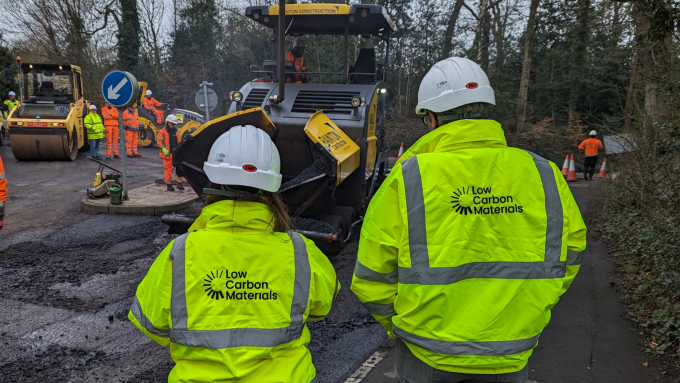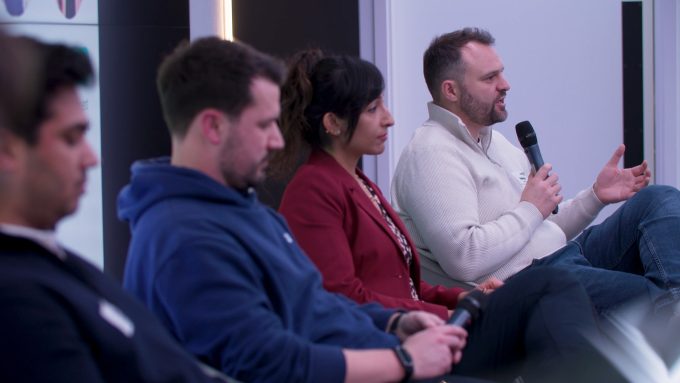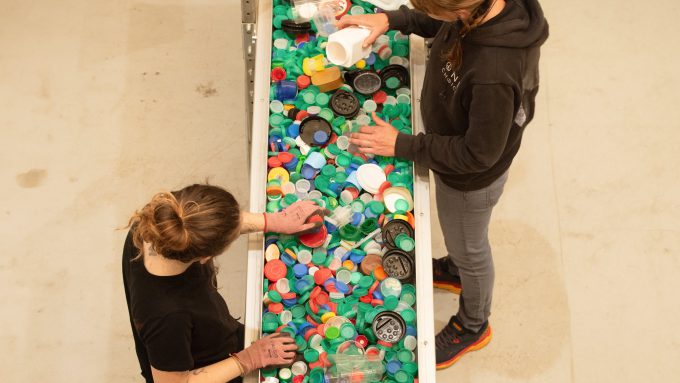
Meet the Academic showing how public procurement can aid net zero aims

“People really appreciate being listened to, included and respected; and everyone should have a say in what our future looks like,” says Dr Katherine Sugar, reflecting on the importance of securing community buy-in for net zero energy interventions. “Decision making should allow for everyday citizens.”
Katherine is about to start a position as a postdoctoral research associate at Manchester University, alongside the Energy Demand Research Centre. Until recently she worked as a research fellow and teacher at both Oxford University and the University of Edinburgh, specialising in renewable energy, sustainability and the environment, and championing low carbon efforts – particularly in cities.
Time spent in the Outer Hebrides early in her career helped Katherine to understand the importance of listening to residents’ hopes and concerns around installing wind turbines. She went on to help city leaders in Glasgow, Nottingham and Bristol assess their approaches to managing sustainable energy networks, and this month begins a new project supported by Connected Places Catapult.
Katherine is one of a new cohort of Researchers in Residence, who has secured £50,000 to develop a project around investing in sustainable energy transitions, titled ‘Public procurement for a just and net zero future’. She is keen to explore what more cities can do to achieve net zero, and how they can come up with innovative financial mechanisms through the lens of public procurement. She is also interested in exploring the barriers encountered, and what lessons can be learnt.
“Procurement is such a powerful lever for Government to implement in order to secure a just net zero transition,” she says. “The UK spends around £290 billion a year on public procurement, yet in 2021 the public sector awarded only £559 million in net zero-related contracts. It's something we need to recognise as a catalyst for net zero.”
Katherine points towards the work of Bristol City Council to introduce an innovative public procurement model for new green energy schemes called Bristol City Leap as “an interesting example of what can be done on lots of projects when public and private finance come together”.
Understanding community interests
Katherine grew up in Berkshire, loved geography at school and fondly remembers a hiking trip to the Brecon Beacons which galvanised a love for the environment and protecting nature. She studied geography at the University of Glasgow and developed an interest in renewable energy systems.
Her undergraduate dissertation was on the community ownership of renewable energy systems, and she focused on the efforts of people on the Isles of Lewis and Harris in the Outer Hebrides to be more sustainable in their electricity generation, while obtaining an income to construct projects of local benefit such as a new community hall.
Katherine spent two weeks on the islands, conducting interviews with residents and representatives of community trusts about their feelings towards wind turbines and solar photovoltaics, “allowing them to tell their story about what they were trying to achieve”. This community-first approach meant increased buy-in from people, she says, who were keen that energy investments were not dictated by corporate interests.
“A lot of that research will feed into my Researcher in Residence project about energy transitions that are fair, inclusive and which everyone can benefit from – not just the rich and the elite.”

Helping cities realise their visions
After completing her degree, Katherine worked at Scottish Power for a year as a geographic information systems technician, before joining a renewable energy consultant as a project manager. There, she looked after planning applications for small scale wind turbine and solar power projects across the UK; understanding first-hand some of the barriers to implementing green energy systems.
She embarked on an MSc in ecological economics at the University of Edinburgh to learn more about how to promote sustainability in a language understood more by business professionals. Her dissertation was on low carbon, inclusive energy transitions in cities; using the case study of Glasgow which later hosted the COP26 climate change gathering. Introduction of a low emission zone for vehicles in the city to help combat air pollution, and a new wind farm nearby were among the areas of focus of her studies.
Katherine went on to study a PhD in geography, focusing on low carbon and inclusive urban energy transitions, drawing on the case study of Nottingham. “The city has a strong vision, was one of the earliest to declare a climate emergency and retains ownership of a lot of infrastructure including social housing, which means it has a lot of control over what it can deliver.
“It also introduced a workplace parking levy for motorists that initially wasn’t popular with the local business community, but has allowed money to be ringfenced for sustainable transport initiatives including an extension of the city’s tram network.”

Following completion of her PhD, Katherine secured a post at the University of Edinburgh to evaluate a programme called Energy Efficient Scotland involving energy transitions and retrofitting initiatives carried out by 32 local authorities north of the border, to see what lessons can be used elsewhere.
She also began working with the University of Oxford to help deliver a project called Go Zero to assess the role of SMEs in promoting low carbon initiatives. As part of a wider research team, she spoke with hairdressers, restaurants, construction professionals, horticulturalists and steel makers across five different areas of the UK to learn about how they are cutting back on energy use due to rising bills, and the manner in which some are promoting sustainability efforts to clients.
“It’s been interesting to see how some businesses have become sensitive to the environment and advocates for sustainability; promoting green products or eco-projects to customers and influencing their behaviour,” she notes.
Her recent work with both Edinburgh and Oxford has taught Katherine of the importance of “a clear leader” in environmental discussions locally; “because without one with vision and ambition, projects often don't make any progress.”
She admits it was difficult splitting her time between two universities, but enjoyed working on multiple projects as it “keeps my brain firing”. Her hybrid approach also allowed Katherine to create a portfolio of linked projects whose outputs can help each other.
Listening to stories and sharing successes
Katherine first came across Connected Places Catapult during a talk on procurement at the University of Oxford’s Procurement of Government Outcomes Club. After discovering more about the Catapult’s work, she decided to apply for the Researcher in Residence position.
“Academia can be incredibly difficult: there's a strong emphasis on getting your own funding, publishing papers and attending conferences. Being able to secure funding to research something I think would be beneficial to study is amazing.”
For her, successful academic projects are those where “stories can be shared and lessons can be learned”. Katherine adds that now is a great time to be talking about public procurement and energy transitions. “Ten years ago, people were just starting to talk about urban governance for net zero. Thankfully, we've come a long way.”
For the next Government, she would stress the importance of ensuring that a transition to a low carbon future is as inclusive as possible. “We need to make sure everyone is included, and we bring along minority groups and those on lower incomes.”
Failure to secure a just energy transition risks larger societal inequalities, she adds, such as worse air pollution in poorer areas; putting additional strain on the NHS.
There will always be people who challenge efforts to introduce greener energy systems in their local area, “but we need to recognise that climate change is happening and we cannot continue as we're doing at the moment by extracting fossil fuels and polluting the environment,” she adds.
“There are lots of things people can do, including changing their travel behaviours. Now I would like to see people admitting we have a problem, and putting their money where their mouth is. We need a lot more private investment in schemes that move us away from carbon lock-in, so we can shift towards a low carbon future.”
Katherine is supportive of technological advances, but says much of what is needed to make a positive change already exists. “We don't need to wait for more innovation, we can make a start. Even small steps will take us a long way.”
Find out about our latest Researchers in Residence scheme, which allows academics to work alongside Catapults on a project or activity in an area of strategic importance. To be alerted about opportunities at Connected Places Catapult, join our Academic Network.
To hear about the Innovation Procurement Empowerment Centre – which aims to promote growth and regional renewal through smarter spending – visit ipec.org.uk





